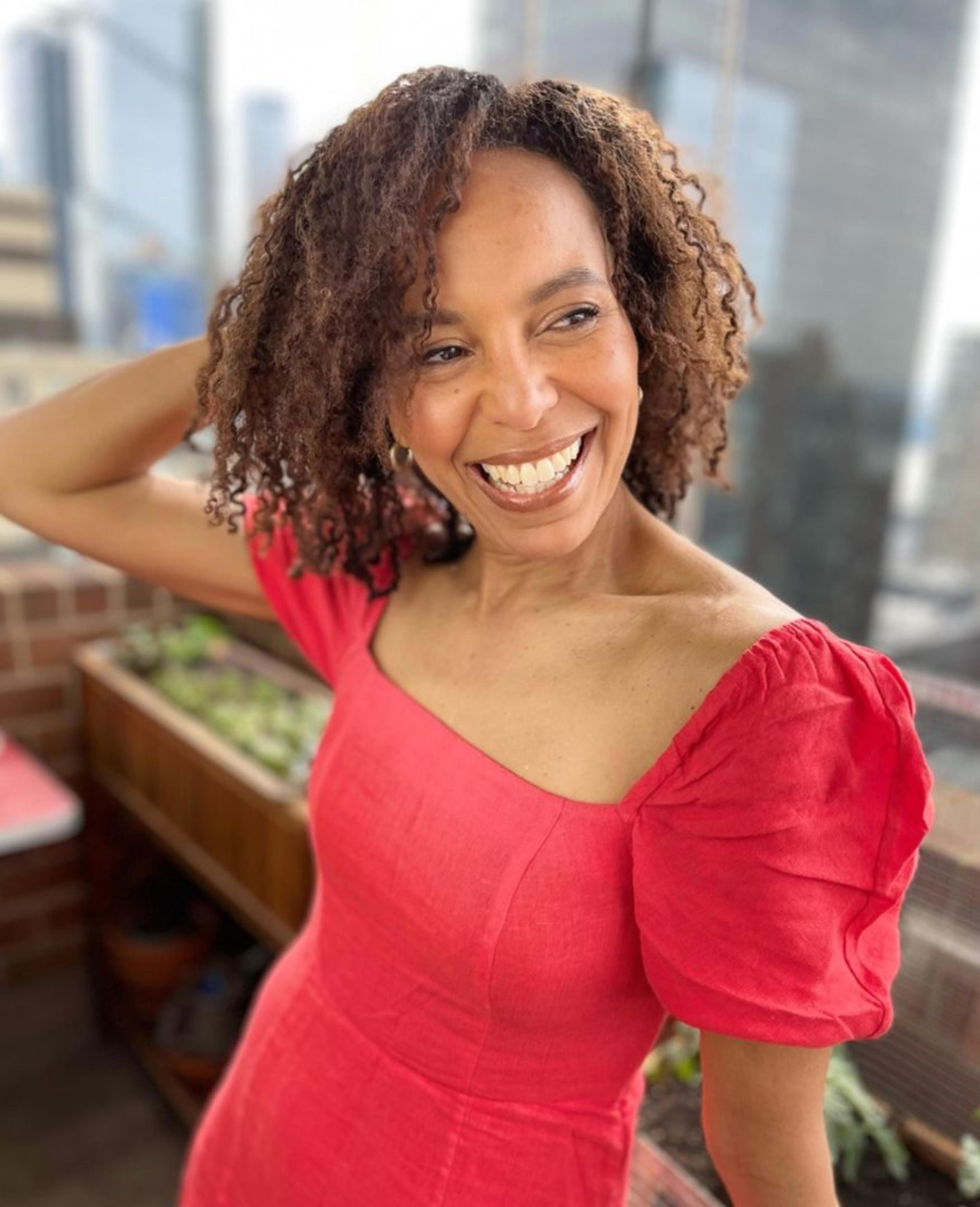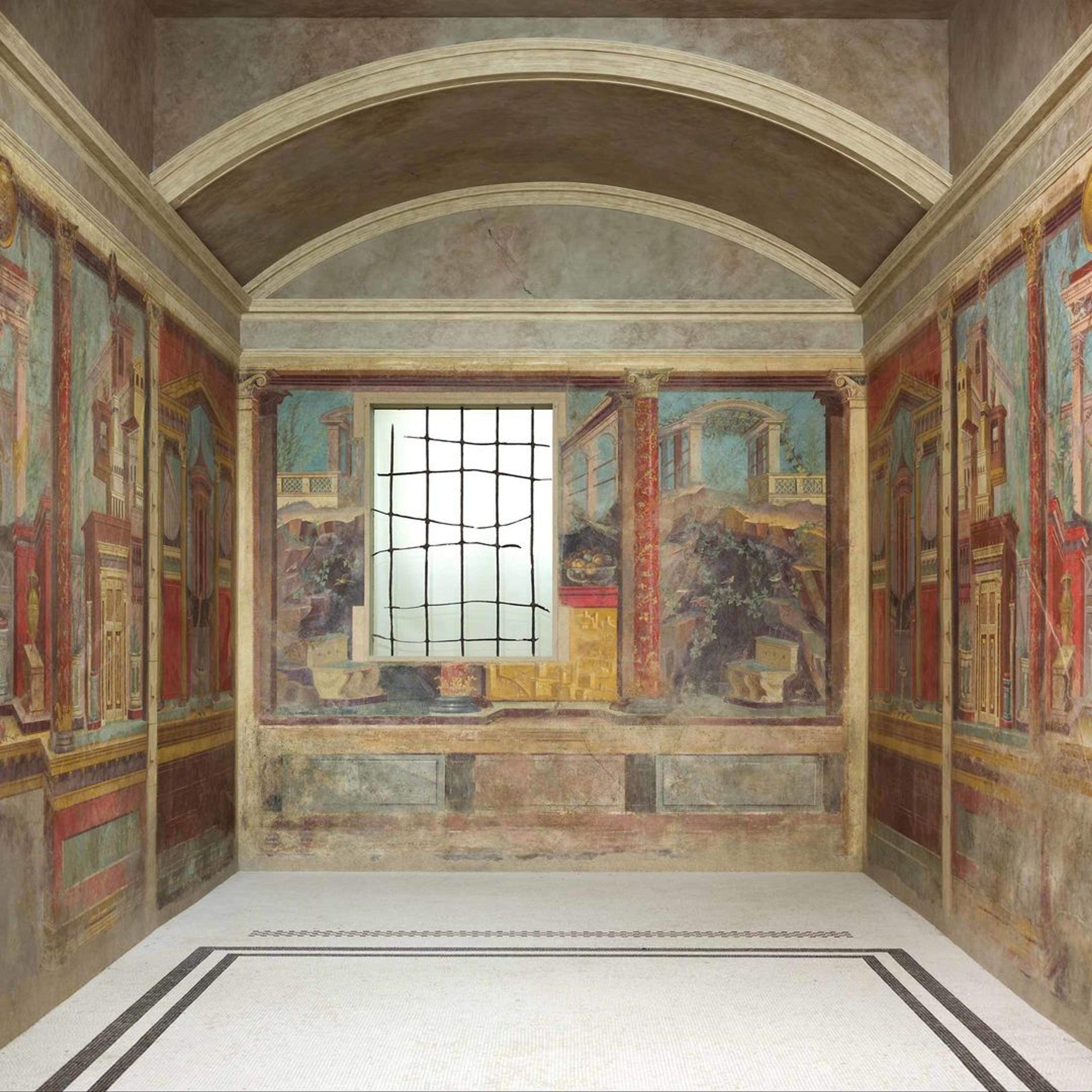I was drawn to the cubiculum (bedroom) from the Villa of P. Fannius Synistor at Boscoreale in the context of Juneteenth because it is ancient and it is the survivor of a catastrophe—but also because it feels fanciful and decadent, cozy and zany at the same time. Freedom has many flavors, and the discipline required to make these frescoes and restore them here reveals the burden of our joys.
"Cubiculum Nocturnum" by Eisa Davis
Cubiculum Nocturnum
I’m in you, Italy, immigrant or expat—
you tell me. I have eaten my way through you, repelled
your skinny panted men and pickpockets, taken refuge
with Milan’s dusky nightclub habitués, chanted
in Tuscan villas and stonewalled policemen who seized
my passport for a bribe until they got tired of waiting,
gave it back, walked away. I’ve been unkissed in the scent
of Capri’s night blooming jasmine and swum in your grottos,
the Mediterranean sparkling in my curl shrinkage.
This is my real life: I’ve been attacked so mercilessly
by your beauty I hallucinated Hitchcock films
bubbling from the funk of your sulfurous islands.
You’re so extra. You are more than enough.
I stand transfixed by the walls of another villa,
now exiled from you inside a grand museum in New York.
These excavated walls stand, decorated at birth then buried
by Vesuvius a mile north of Pompeii’s House of the Poet,
where Toi and Cornelius first spied the mosaic that spelled
Cave Canem. This villa loves itself so much it has built
an infinity of wonder into all eyes that visit. A bedroom,
the night’s room, painted with the structured fantasy
of what lies beyond it, a lush, ordered creation
on stucco once as blank as a pair of Kendrick’s khakis.
This invented world done up in cinnabar and ochre,
pulling me away from myself, an invitation to a scene.
New York City sways under rain and the feet of protesters
and I feel an allegory coming on. I take these frescoes
as a record of what we never beheld but still saw,
the imagining that fills our lungs with life. Walls adorned
with futures where we are free from slavery
or prison or despair, walls surrounding our bodies
with cool or warmth, sheltering us from snakes
falling out of trees, so we might sleep to dream.
tell us what to turn toward.
blind us with what we want to see.
tattoo us permanently into that barbeque in paradise
But still we get got, intoxicated with escape
and rumors of escape brought to us
by those who still have a thing for shackles
and forced perspective. Sovereign imagining leaks
like blood, pint by pint, imperceptibly, and it’s hard to tell
we’ve been had, dreaming others’ dreams
that are as dear and strange as a growing child.
In a fictive nation, voluntary servitude
comes dressed as belief, a fear of losing.
Back outside, out of Italy, out of the museum,
in my real ass life in these divided states of amnesia,
I wrap my gum in a ripped corner of paper, I stumble
over my words as time begins to move again, and look,
someone’s mark on the world is a cigarette burn
on a plastic subway seat—
I know this to be some kind of freedom: where my life
and the life of my mind meet fresh, embracing
again, as if they’d once lost each other in a flood of ash.

Eisa Davis
Writer, Composer, Performer
Eisa Davis is a writer, composer, and performer. A recipient of a 2020 Creative Capital Award, the Herb Alpert Award in Theater, and an Obie Award for Sustained Excellence in Performance, Davis was also a Pulitzer Prize–finalist for her play Bulrusher, and wrote and starred in the stage memoir Angela's Mixtape. Other plays include Paper Armor, Umkovu, Six Minutes, The History Of Light (Barrymore nomination), Warriors Don’t Cry, Ramp (Ruby Prize), Mushroom (premiering September 2022) and ||: Girls :||: Chance :||: Music :||:. A multivolume series of her plays is soon to be published by 53rd State Press. Eisa led the 2021 citywide celebration of Kathleen Collins’s work AFROFEMONONOMY // WORK THE ROOTS; has recorded two albums of her original music, Something Else and Tinctures; and has enjoyed a multidecade career as a performer on stage and screen. Current projects include her music-theatre piece The Essentialisn't, and the songs for a musical version of Devil in a Blue Dress. An alumna of New Dramatists, Davis has received awards and fellowships from the Hermitage Artist Retreat, the Doris Duke Charitable Foundation, the Helen Merrill Foundation, the Van Lier and Mellon Foundations, and Cave Canem. Eisa was born in Berkeley, CA and lives in Brooklyn, NY.
